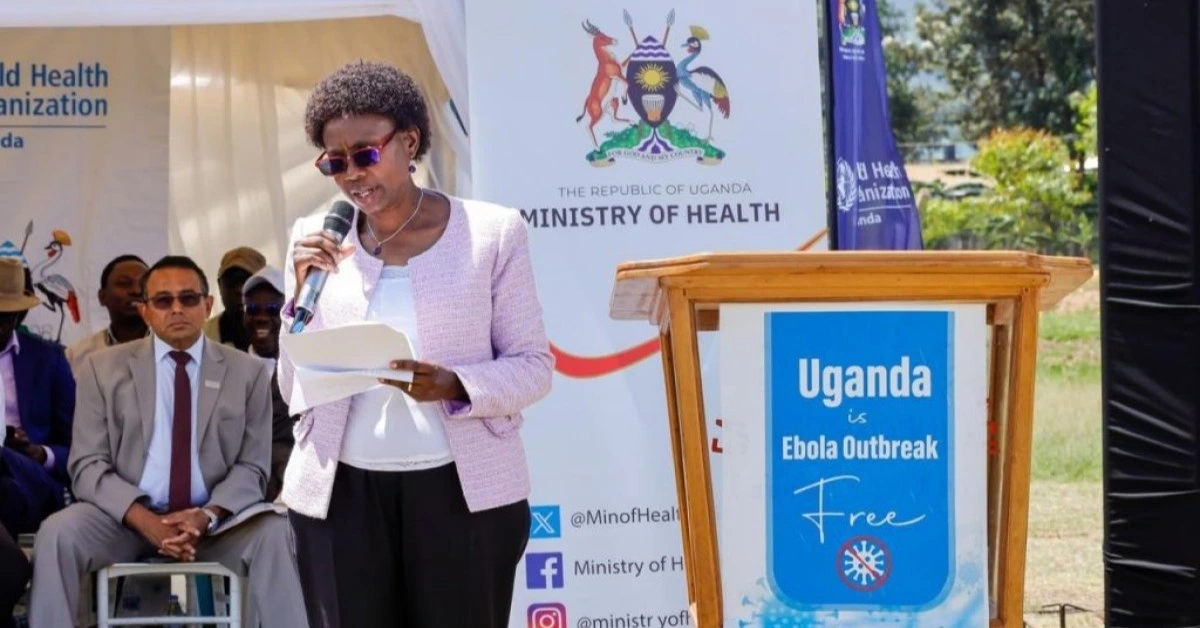
ETHIOPIA – The Africa Centres for Disease Control and Prevention (Africa CDC) has applauded Uganda for officially ending its eighth outbreak of Sudan Ebola Virus Disease (SVD).
The milestone marks a significant public health achievement following 42 days with no new infections since the last confirmed case on 2 March 2025. The final patient was discharged on 14 March.
Health authorities recorded a total of 14 cases – 12 confirmed and two classified as probable. Four people died, resulting in a case fatality rate of 28.6%.
Despite the challenges, all ten treated patients recovered and have joined survivor support programs offering psychosocial care and reintegration services. These individuals no longer pose a risk to the community.
Uganda’s Minister of Health, Hon. Dr. Jane Ruth Aceng Ocero, officially announced the end of the outbreak, attributing the success to strong surveillance and rapid public health action.
She stated, “Having recorded no cases amidst sustained surveillance efforts, I now officially declare the current Sudan Ebola Virus Disease outbreak in Uganda to be over.”
Efforts to control the outbreak involved tracing 534 contacts, of which over 85% were successfully quarantined and monitored. This close tracking helped limit transmission and supported timely interventions.
Africa CDC Director General Dr. Jean Kaseya praised the Ugandan government and its people, especially President Yoweri Museveni and Minister Aceng, for their leadership and commitment.
He said the outcome reflects both scientific discipline and the power of African collaboration. “Uganda has shown how decisive leadership, strong partnerships, and unity can overcome serious public health threats,” said Dr. Kaseya.
The outbreak was first confirmed on 30 January 2025. Uganda immediately launched a robust response that included active case finding, isolation and treatment, contact tracing, death monitoring, and wide-reaching public education.
These efforts were particularly noteworthy given the lack of approved vaccines or targeted treatments for the Sudan strain of Ebola. Africa CDC played a critical role as a technical partner throughout the response.
When Uganda called for support, the agency quickly deployed a team of experts, including members of the African Volunteer Health Corps (AVoHC), who worked hand in hand with local authorities and partner organizations.
Community involvement was key. According to Dr. Kaseya, “Local leaders and residents helped turn fear into informed action through open communication, education, and trust.”
Africa CDC supported this by training nearly 900 community health workers and 80 surveillance officers to boost local response efforts.
Additionally, 40 infection prevention mentors were deployed to high-risk districts to guide healthcare workers and inspect facilities.
To enhance lab capacity, Africa CDC provided rapid diagnostic kits and strengthened genomic testing. These tools were critical in breaking transmission chains and confirming recovery.
Beyond the emergency phase, Africa CDC continues to support Uganda through long-term preparedness efforts.
These include the donation of a genomic sequencing machine, delivery of emergency supplies worth US $4.3 million, and ongoing research such as a population-level sero-survey to assess exposure to the virus.
XRP HEALTHCARE L.L.C | License Number: 2312867.01 | Dubai | © Copyright 2025 | All Rights Reserved